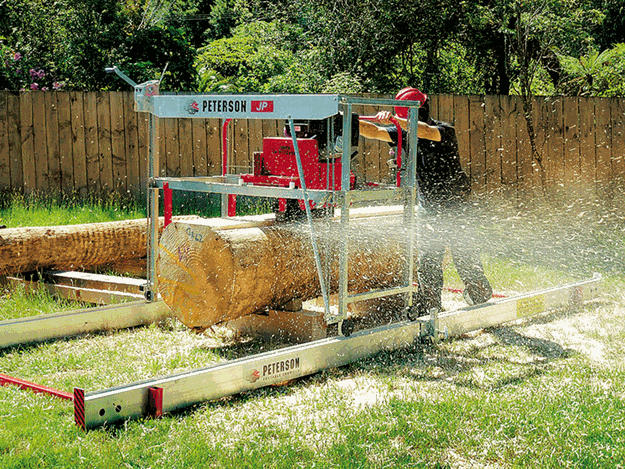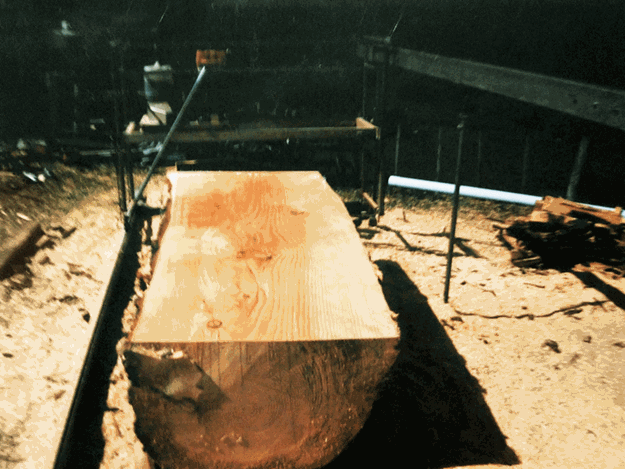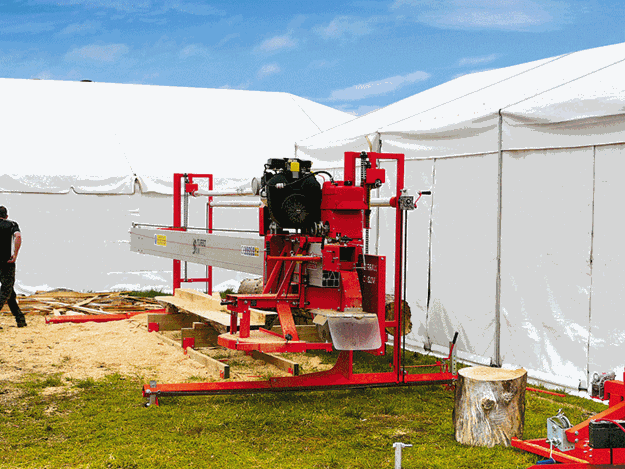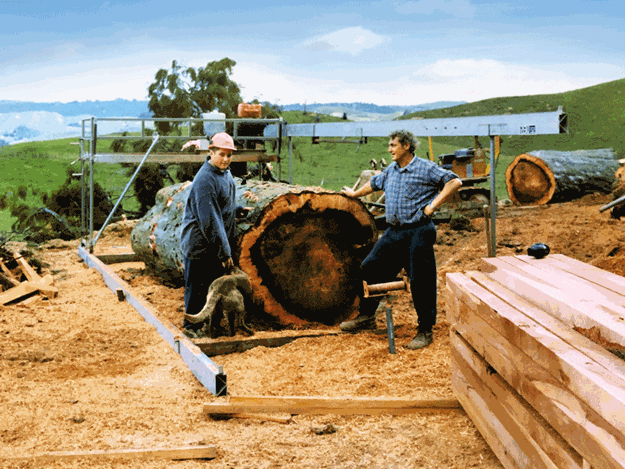Forestry commentary: portable sawmillers required
The sawmill timber supply problem is not going to disappear anytime soon, but can portable mill options fill the gap?
 |
|
Peterson Portable sawmills from Rotorua
|
What interesting times the New Zealand timber and logging industry are in, and like me, I’m sure you often sit back wonder what will happen next? The most recent happening was the bombshell of Carters dropping supply to MITRE 10, Bunnings, and others in the supply chain.
In a recent article (DOW #335) ‘Nature Calling, Carbon Sink Needed’, I made the statement: "The housing crisis will continue to put pressure on our timber supplies, so are we falling on our sword? Demand often outstrips supply, so we cut trees at a younger age." Well, bang, here it is.
No amount of legislation from Wellington will cure the housing crisis when 90% of our raw logs go to China. New Zealand will continue to have timber shortages; planning our future domestic timber cut is essential to helping cure our housing problem and keeping build prices in line.
 |
|
New Zealand will continue to have timber shortages and so planning our future domestic timber cut is essential
|
The talk of using more concrete and steel framing in our building will increase costs and blow out our carbon footprint, so I don’t see those as viable long-term options. Our domestic mills pay export prices, driving up the cost of building. The Chinese government pays subsidies to their wood buyers, snapping up all our supply to support their own demand.
The sleeping Chinese dragon has its own agenda; they are busy developing their own domestic wood supply and this should come on stream within 30 years. If China reaches their own sustainable timber cut, will they just chop us off at the knees and leave us with an oversupply of logs?
For years, our domestic sawmills have been put to the sword, and it would have made more sense to subsidise our own domestic industry rather than tax and legislate against the end user that is continuing to hurt our own people.
Is there a solution? Yes, but who will pick up the mantel and run with it? Perhaps all of this will usher in the return of portable sawmills. You might ask, how much would these mills contribute to the timber shortage?
The small amounts produced by portable mills is just a drop in the bucket, but if you keep doing it as a combined effort the bucket will quickly fill, with our domestic market being the benefactor.
Farmers are now choosing to get poplar trees milled for yard material. I asked one farmer how strong was it and did it do the job? An emphatic yes was the answer, as the heavy stock seems to bend rather than break.
The more the farmers cut their own timber, the less pressure on timber suppliers, thereby enabling them to meet the demands of their customer base. Add to this, Kiwi ingenuity with the production of fence posts from recycled plastic and we have a big plus to stop tanalised timber posts polluting the ground.
Farmers have small wood lots of well-aged pine on their farms. They are too small for small wood lot harvesters who want 10 hectares or more to make it economic to cut. But portable sawmillers can step into the gap, and as I see it, there’s a huge opportunity for the entrepreneurial hardworking logger to start a business and step up to the mark.
There are a number of portable mill options available on the New Zealand market, starting with a Mahoe-built south of Kerikeri Northland. The Mahoe Supermill is a twin saw option with a unique way of cutting and is possible to operate this on your own.
 |
|
The Mahoe Supermill is a twin saw option
|
After each cut board, the mill pushes the plank back to the operator end for easy stacking. The Supermill takes up to an hour to set up and can cut up to four cubic metres an hour, with a recovery rate of close to 70% from what I understand.
The Mahoe Minimax is a lighter twin saw version of its big brother, making it easier to set up and get into less accessible places. As the Mahoe is New Zealand-built, quality is assured and parts are easy to acquire.
Peterson Portable sawmills from Rotorua is another quality product. Having purchased one back in the ’90s and milled every sort of timber from pine, eucalyptus, popular, redwood, totara, matai to mairi to name a few, I can attest they produce versatile units. Petersons have a number of portable options, including a slabbing bar and have been making mills for close to 30 years.
 |
|
Petersons have a number of portable options
|
Lucas Portable mills are available from New Zealand agents. They are Australian-made, ensuring another quality product. The mills are portable, fitting on the back of the average ute with roof racks to carry the rails. The Lucas could be considered the handyman millers machine and ideal for logs recovered from smaller tree operations.
To set yourself up in business as a portable saw miller, you would ideally have a four-wheel-drive Hiab-type truck to assist lifting logs. With a truck like this, you also have the option of uplifting milled timber and delivering it to a timber company for further processing if required.
Farmers today are always planting and there’s a huge supply of quality mill-able timber available. If you’re cutting for farmers normally, you can get the mill into position close to the resource. Once milling in a rural location, word gets out and if you do a good job the work will find you.
The sawmill timber supply problem is not going to disappear anytime soon, but can portable mill options fill the gap? I believe they can. Should enough loggers move sideways from producing the raw material and take it to another level by producing a finished
product, we will start reversing the timber shortage.
Sure, there’s a huge learning curve producing quality timber, but taking this step increases a logger’s total understanding of the product they make. The percentage of recovery can vary between log species. Macrocarpa can have a low recovery percentage due to bug infestation, with yield sometimes as low as 30%.
Eucalyptus can be a mongrel to mill as most logs are loaded with tension, but millers will soon earn to work with whatever is thrown at them. Milling does, at the end of the day, offer great satisfaction looking at your production and recovery. Find yourself a good buyer and you will have a well-paid job for life.
Find new and used machinery for sale in NZ
Keep up to date in the industry by signing up to Deals on Wheels' free newsletter or liking us on Facebook.











.gif)
.gif)
.gif)
.gif)
.gif)

